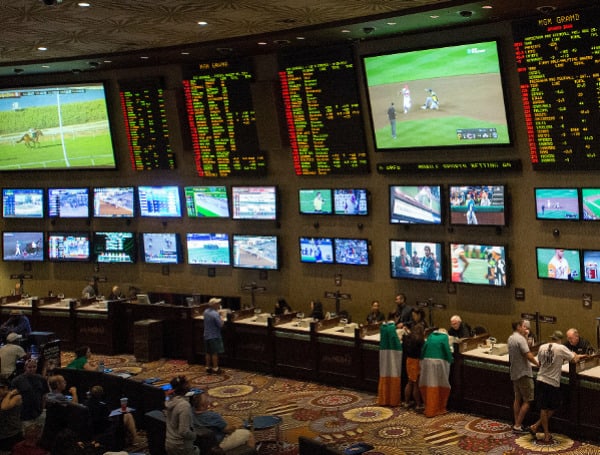The history of gambling, and proposals to expand all forms of wagering and gaming have a long history in Florida.
In 1935, the state legislature passed a bill allowing for slot machines and Jai-alai, but the statute was short-lived as conservatives in the legislature repealed the law just two years later.
Since then, the following legislature-driven changes have occurred: small-stakes bingo was legalized in 1970; penny-ante poker (pot cannot exceed $10) at private homes was passed in 1989; poker was legalized at pari-mutuel facilities (places where betting is happening on racing & Jai-alai) in 1996; (same pot limit) poker betting was raised to a whopping $2, with maximum three-raise limit, in 2003; betting at pari-mutuels was raised from $2 to $5, and no-limits Texas Holdem, and higher-stakes poker tournaments was legalized in 2007; in 2010 the legislature passed no-limit poker.
In between these mostly legislature-driven changes to Florida’s gambling laws, there have been a number of ballot initiatives to expand gaming in many forms. Many of those attempts have been restricted to allowing casino-style gaming limited to just Miami-Dade, and Broward counties – though half-hearted efforts have also been attempted in a number of other counties.
Thus far, nearly every ballot effort to expand gambling within the state has failed by overwhelming majorities, with one exception being the 1986 ballot initiative to allow for a state-operated lottery under the dubious claim that proceeds would go to fund Florida education initiatives.
The other was in 2004 when Florida voters approved a ballot initiative to allow for slot machines at pari-mutuel facilities in Miami-Dade and Broward counties. That measure passed by the thinnest of margins – 50.8% to 49.2%.
In between all of these ballot initiatives, the legislature has passed laws allowing gambling in the state at Seminole Indian Tribe-owned facilities.
These “gambling pacts” require passage by the legislature and approval from the federal government’s Bureau of Indian Affairs (BIA). Today, the Seminole Tribe and its Hardrock Hotel and Casino is the largest gambling interest in the state.
Earlier this year, the state approved, and the BIA – by default – okayed the state’s revised compact with the Seminole Tribe to allow sports betting in Florida. The 30-year agreement gives the Seminoles exclusive control of games such as blackjack, craps, and online fantasy and sports betting at its casinos and at 27 nontribal pari-mutuels via its Hard Rock Digital platform.
In return, the Seminoles will pay the state of Florida at least $500 million annually over the pact’s first five years.
Of course, when that much money is in play, other interests want a seat at the table. Enter “Florida Education Champions,” an organization of online sports gambling interests supported by Draft Kings and Fanduel that is pushing hard for a ballot initiative asking voters to allow sports betting to be conducted outside of the legislature’s approved sports betting through the Seminole Tribe.
The measure would effectively add competition to the Seminoles’ legislature-approved monopoly by allowing entities such as Draft Kings and Fanduel to accept online sports wagering in the state.
Florida Education Champions recently sent out what I recollect as the most sophisticated constitutional amendment initiative petition form I have ever seen in my 50-years as a Florida native.
The slickly produced mailing is in full-color, and makes the most of the exhausted claim that all gambling proceeds will “increase funding for education.” Yeah, sure it does, but the legislature uses smoke and mirrors to make that money “appear” to be extra, when in reality, they use it to offset what they would otherwise spend.
In short, here are my thoughts on this effort:
First, I don’t think the Seminole Tribe (or anyone for that matter) deserves a monopoly on gaming (or anything else) in Florida. The current “compact” is nothing short of a state-approved monopoly.
Second, sports gaming under the recently approved compact will now be a thing in Florida. So, expanding the opportunity for other entities to allow Floridians to make a bet on sports only means there is competition, which I like. Opposing this ballot initiative does nothing to stop legalized sports betting in Florida.
As such, after much contemplation following receipt of the “Florida Education Champions” mailer with enclosed petition form and postage-paid envelope, I signed the form and sent it back to Florida Education Champions.
Sports betting is now a thing in Florida, thanks to the legislature and Governor DeSantis.
We might as well take away the Seminole Tribes’ monopoly and allow Draft Kings, Fanduel, and others to have a shot at taking Floridians’ bets.
Support journalism by clicking here to our GoFundMe or sign up for our free newsletter by clicking here
Android Users, Click Here To Download The Free Press App And Never Miss A Story. It’s Free And Coming To Apple Users Soon

